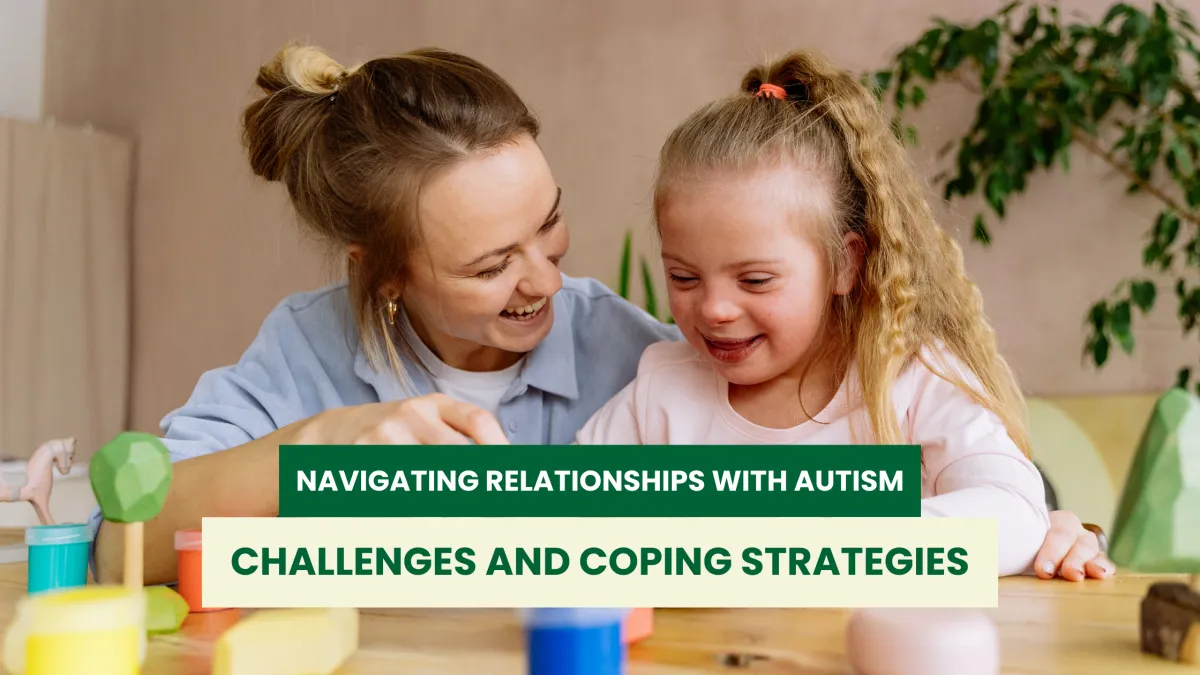
Navigating Relationships with Autism
Being in a relationship can be a beautiful, rewarding experience, but for individuals with autism, it often comes with unique challenges. Autism spectrum disorder (ASD) affects communication, social interactions, and sensory processing, which can sometimes make relationships more complex. However, with understanding, patience, and effective strategies, individuals on the spectrum can build and maintain fulfilling romantic relationships.
Challenges of Being in a Relationship with Autism
1. Communication Differences
One of the most common difficulties faced by autistic individuals in relationships is communication. Many people with autism struggle with interpreting nonverbal cues, sarcasm, or implied meanings, which can lead to misunderstandings. Additionally, expressing emotions verbally may be challenging, making it difficult for partners to understand feelings and intentions.
2. Sensory Sensitivities
Many autistic individuals experience heightened or diminished sensory sensitivities. This can make physical affection, certain environments, or even specific sounds and textures overwhelming. Differences in sensory processing may sometimes cause stress or discomfort, leading to unintentional conflicts with a partner.
3. Difficulty with Social Cues and Expectations
Social norms and relationship expectations can be confusing for those with autism. They may struggle with understanding unspoken relationship rules, like when to give a partner space or how to handle disagreements. This can sometimes lead to feelings of frustration or isolation for both partners.
4. Emotional Regulation
Managing emotions can be difficult for autistic individuals. They may experience emotions more intensely or struggle to identify and express what they’re feeling. This can lead to moments of emotional overwhelm or shutdowns, which may be hard for a partner to understand without proper communication.
5. Navigating Changes and Routine Disruptions
Many autistic individuals find comfort in routines and predictability. Relationships, however, often involve spontaneity and change, which can be stressful. Adjusting to a partner’s needs, unexpected plans, or emotional fluctuations can feel overwhelming.
Coping Strategies for a Healthy Relationship
1. Open and Honest Communication
Clear and direct communication is essential. Autistic individuals may find it helpful to express their thoughts and emotions in a straightforward manner. It can also be beneficial to establish a system of communication that works best for both partners, such as writing things down or using visual cues.
2. Educating the Partner about Autism
A supportive partner will want to understand autism and how it affects their significant other. Open conversations about specific challenges and needs can foster patience and empathy. Providing resources or having open discussions about ASD can strengthen the relationship.
3. Setting Boundaries and Expectations
Both partners should openly discuss their boundaries and expectations. Whether it’s about personal space, social outings, or sensory preferences, establishing clear guidelines can help prevent conflicts and ensure that both individuals feel respected and comfortable.
4. Developing Coping Mechanisms
Finding strategies to manage stress, sensory overload, and emotional regulation can be helpful. This might include taking breaks when feeling overwhelmed, practicing mindfulness, using sensory tools (such as noise-canceling headphones), or engaging in self-soothing activities.
5. Seeking Support
Therapists, support groups, or relationship counseling can provide guidance tailored to the specific needs of autistic individuals and their partners. Professional support can offer coping techniques and insights that enhance communication and understanding.
6. Embracing Routine and Compromise
While maintaining routines can be comforting, it’s also essential to practice flexibility in relationships. Finding a balance between predictability and adaptability can make navigating relationship dynamics smoother.
Final Thoughts
Being in a relationship while navigating autism-related challenges can be complex, but with mutual understanding, patience, and effective strategies, fulfilling relationships are absolutely possible. Every relationship is unique, and what works for one couple may not work for another. The key is open communication, education, and a willingness to support each other’s needs.
Autism doesn’t make love any less real—it just means finding unique ways to express it.
